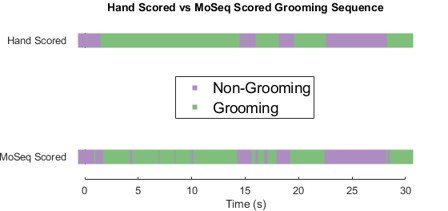Ongoing Projects
Muscarinic Receptors as Targets for Regulating Repetitive Behaviors
We are currently investigating targeting the M4 subtype of muscarinic receptor as a novel therapeutic strategy for reducing repetitive behaviors that are observed in numerous disorders including autism and obsessive compulsive disorder. Efforts are focused on determining what subpopulations of M4 receptors mediate these effects and the mechanisms whereby these receptors modulate these behaviors. We are proud to belong to the Carolina Autism and Neurodevelopment (CAN) Research Center. Click the CAN image at the bottom of the page to learn more about the amazing Autism research being done in South Carolina!
Cannabinoid Receptors as Targets for Treating Pyschosis
We are currently investigating targeting the CB2 subtype of cannabinoid receptor as a novel therapeutic strategy for mediating antipsychotic-like efficacy. These studies aim to determine if drugs targeting CB2 receptors can mediate antipsychotic-like effects in preclinical models via inhibition of striatal dopamine release.
Techniques
Fiber Photometry:
This technique allows us to look at neuronal activity or neurotransmitter release in awake behaving rodents. These studies will advance our understanding of how different brain circuits are regulated during specific behaviors such as repetitive grooming, and how drugs can modulate the activity of these circuits.
Electrophysiology:
Using whole-cell patch clamp techniques we can look at the activity of single neurons and determine how different drugs can regulate specific brain circuits and regulate synaptic plasticity.
Behavioral Pharmacology:
We use numerous behavioral assays to assess either repetitive behaviors or antipsychotic-like efficacy including cutting edge techniques that leverage machine learning algorithms to assess rodent behavior









